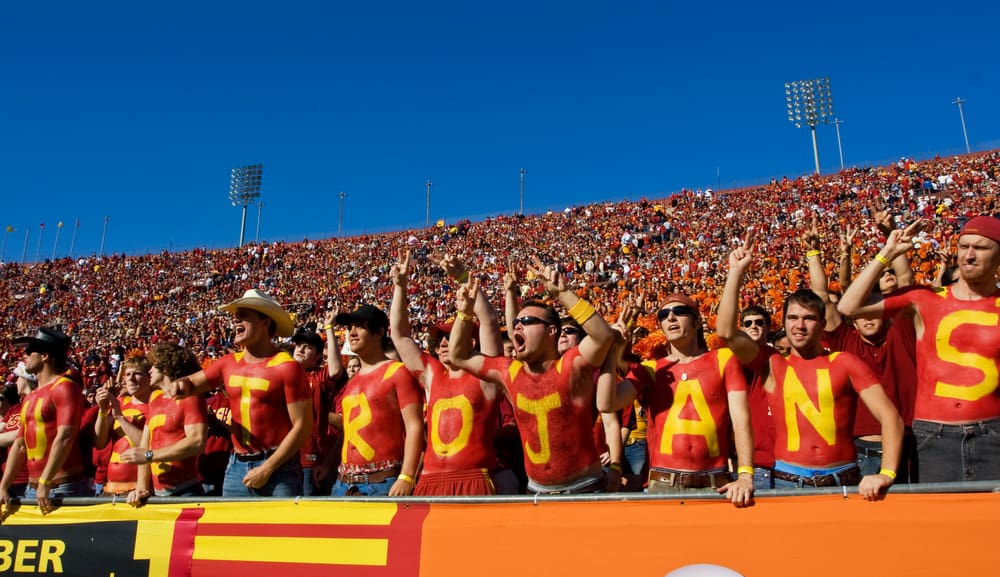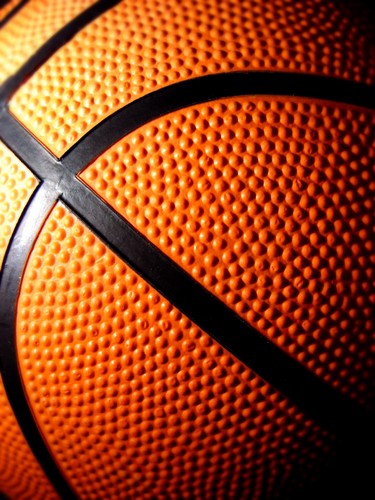
Do you hope that your child is going to win an athletic scholarship?
I’ve met many parents who hope/expect their children to pay for college with their athletic prowess. Some of these jocks, by the way, are in grade school! I’m not kidding.
Even my own sister, whose daughter is 11, has fallen prey to the belief that a soccer scholarship is in her future. And frankly she should know better.
The chances are miniscule, however, that my niece or any other child will someday win an athletic scholarship. About 2% of high school athletes win sports 
Being an athlete, however, can boost a teenager’s admission chances because all schools, regardless of whether they offer scholarships, desire strong sports programs. Your child doesn’t have to be a superstar athlete to increase his or her chances of admission. And your child doesn’t need to capture a sports scholarship to ultimately make your college tab more affordable.
Athletic Scholarship Realities
In reality, athletic scholarships are often not as generous as regular financial aid or merit scholarships that jocks can earn for their academics and other talents. Striking it big with an athletic scholarship, however, resonates with parents whether their children are still in grade school or well into their high school years.
If sports scholarships sound appealing, here is something to keep in mind: Families often end up shopping for athletic scholarships rather than for schools that represent good academic fit.
If you are a gifted athlete or the parent of one, I’d recommend that you first identify schools that would be a match academically and then inquire about the sports. Getting a college education is infinitely more important than playing a sports. And remember, the money you receive for academic accomplishments is often more than a sports scholarship.
Athleticism won’t make up for poor grades
What’s tragic about the focus on sports scholarships is that is encourages students to spend more time on their sport than their grades. Kris Hinz, an independent college counselor, once shared with me her experience with high school athletes that nicely sums up the problem. Here is her observation:
In my practice, parents often apologize about their kid’s grades, then quickly say, “But he’s a great athlete and we’re hoping hat can be his ace in the hole.” They are hoping that his athletic prowess will get him accepted and get him money! A tall order! They are usually wrong on both counts. And the worst part is, all the time that has been devoted to sports has siphoned off time that could have been spend studying to earn a strong GPA.
Next post
In my next college blog post, I’ll share more about athletic scholarships.
Lynn O’Shaughnessy is the author of the second edition of The College Solution: A Guide for Everyone Looking for the Right School at the Right Price.

A friend’s son, a nationally-ranked runner, attends a flagship state school. He was “red-shirted” as a freshman, with expectation he’d practice with team, then run for another four years (yes, five year commitment for a four-year degree). University refused him admission to his preferred sub-school, which meant he wasn’t able to major in his intended major, and it did so twice (at entry, and again at end of freshman year). He was forced to craft an alternate major to remain on-track for his eventual career-path direction. He is still on varsity team but “full pay”, without any athletic scholarship – much to the chagrin of his parents, who lobbied hard for the private university offering him a “full-ride” athletic scholarship (but in different athletic division).
There is no doubt that athletics are important. From as early as grade school, sports teach teamwork, discipline, dedication, and also the crucial skill of time management when in middle and high school. But I am befuddled at the importance placed on what happens on the field versus what transpires in the classroom (by both student athletes and their parents!) The shift in our society has placed greater emphasis on athleticism and not scholarship. These student athletes need guidance to choose a university that is a good fit academically and then consider their sport as secondary.
I think this is another big blind area for parents — along with “why can’t my kid get into Stanford with a 4.2 GPA?”
If parents begin with the NCAA stats on probability of moving from high school to NCAA sports (http://www.ncaa.org/wps/wcm/connect/public/ncaa/pdfs/2011/2011+probability+of+going+pro), the true situation becomes more clear. A tiny proportion of students move from high school to NCAA sports to start with, then as you explain, those few athletic scholarships are usually small and pay for only a little portion of college.
Grades rule! (followed by legacy …)
I completely agree with you Denise. I also feel that it’s only natural for student athletes, who hope to get an athletic scholarship, to not work as hard in high school.
Lynn O’Shaughnessy
As the parent of a child who plays club soccer, we have had the opportunity to meet kids and parents from not just our local area, but several states at tournaments. In talking to them, it’s pretty clear that most recognize the odds are against them, but college costs are so expensive, they are desperate for any chance to win a scholarship, no matter how small. Contrary to most opinions expressed about them, these folks are not blind, but are desperate.
Fortunately our club plays for fun, and so costs very little, but sadly many of these parents pay thousands each year for their child to be in “name” clubs and get private coaches in hopes of attracting a scholarship. It’s sad because in the ten years a child will play competitively, investing that same money would have paid for a couple of years of college.
Hi Jim,
Thanks for your note. Unfortunately, these parents don’t understand where to look for substantial college money. They don’t understand that the money is not in soccer scholarships! They should be looking for need-based aid and/or merit scholarships from the schools themselves.
Also, Div. I is a full-time job leaving little time for anything else while in college. I wanted my daughter, who was recently asked to play with a semi-pro women’s soccer team (she turned the team down because she is too busy with her career), to focus first and foremost on her academics which was way more important than her sport.
Lynn O’Shaughnessy